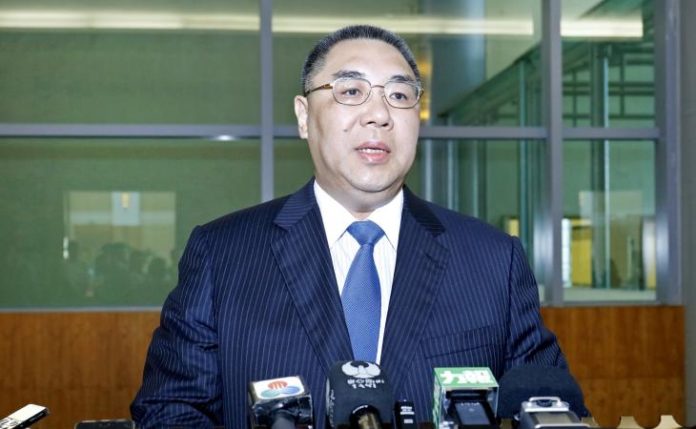# Were your terms of appointment the continuity or a break with the approach of Edmund Ho?
# The ‘golden handshake’ bill brought thousands on to the streets and resulted in Macau’s biggest protest since the handover. What lessons did you learn from this?
# The fight against corruption was one of the hallmarks of your mandates. To what extent did this result from the Ao Man Long case?
# The passage of super typhoon Hato was the most momentous event of these nine years. Do you admit that the way it was managed will colour the evaluation of your work?
 # You made more than 80 visits to China between 2010 and 2017. What results or benefits did this bring Macau?
# You made more than 80 visits to China between 2010 and 2017. What results or benefits did this bring Macau?
# One of the hallmarks of these two mandates has been the regional connection to Guangdong and the Bay Area. Does this mean a loss of identity of the ‘second system’ apropos the first (PRC)?
# In the 2014 elections you promised “to promote the gradual development of democratic politics.” Why did this not happen?
# None of the major works that you have decided to promote since 2009 was completed within the initial budget or deadline. How do you explain this situation?
# If we compare your first Public Address (2010) with that of a little over a month ago a remarkable increase in concern about security is evident. What has happened in Macau in the intervening years to justify such concern?
# What legacy do you think you will leave to your successor?
 “Political marketing at the core”
“Political marketing at the core”
As Edmund Ho was also reluctant to grant interviews Chui Sai On could have taken the time to make a difference.
This has not happened so far, with the last one he gave, to the People’s Daily, happening more than four years ago.
“Chief Executive Chui Sai On is known by the population as the Chief Executive of the Airport,” says Democrat MP Au Kam Sam. “He rarely leaves the house and only when he visits abroad do journalists have the opportunity to interview him at the airport.”
Au has further accused the government of “violently violating the freedom of the press.”
In another context, his party colleague, Ng Kuok Cheong, once urged the Chief Executive to “wake up and stop pretending to be asleep!”
It is not thought, however, that the lack of participation of the Chief Executive in interviews translates into little attention to media issues.
“Since assuming the office of Chief Executive in 2009, Fernando Chui Sai-on has followed in the footsteps of the central leaders and put political marketing at the core of his overall governing strategy,” according to Wilson Wong and Ying-ho Kwong of The Chinese University of Hong Kong.
“After coming to office, Fernando Chui greatly expanded efforts using political marketing to reduce the legitimacy gap by designing the political brands of ‘sunshine government’ and ‘scientific administration’ to emphasise democratic elements for improving transparency, consultation, and deliberation,” they add.
In the research paper Political Marketing in Macao - A Solution to the Legitimacy Gap for a Hybrid Regime? both authors argue that “Chui has made use of various methods to interact with the public to explain his policies, including holding media sessions, delivering public speeches, and conducting community visits.”
In comparing Chui with Ho they conclude that “Fernando Chui has obviously been more active. He continued his brand-building after being re-elected in 2015.”
























